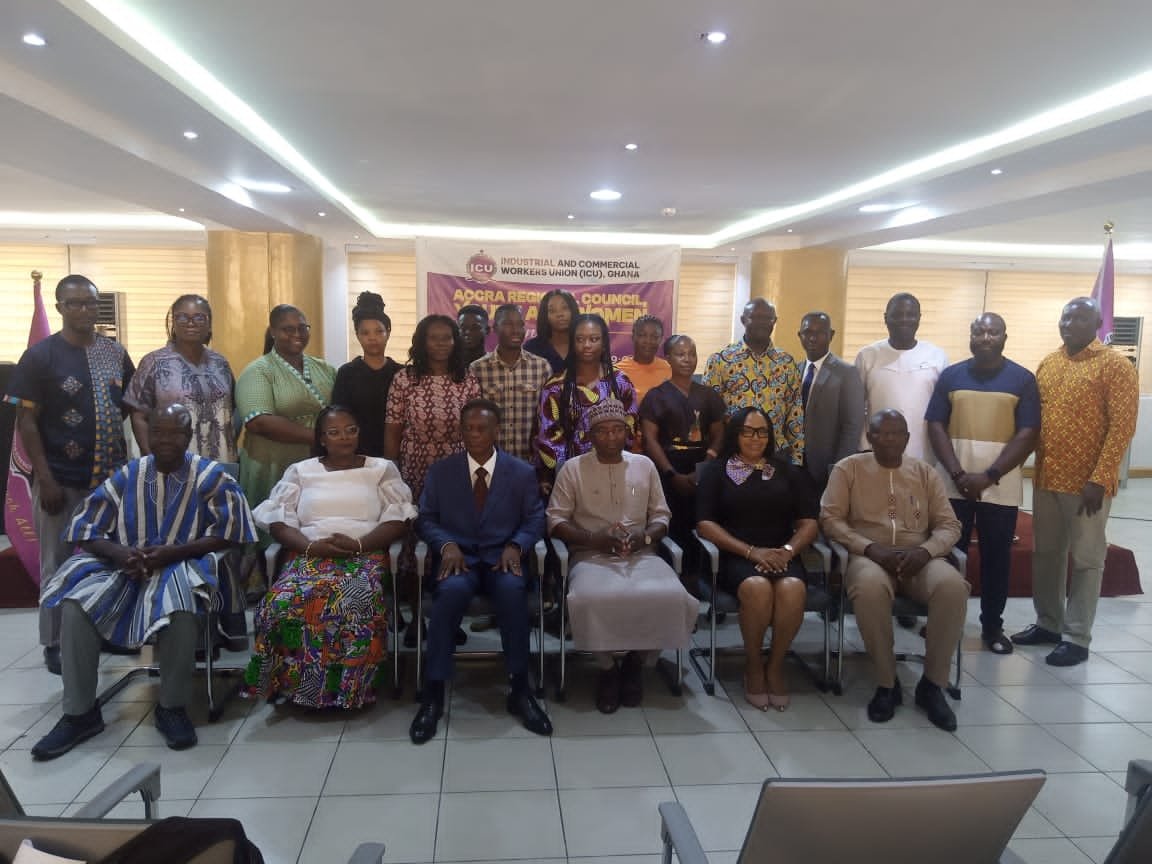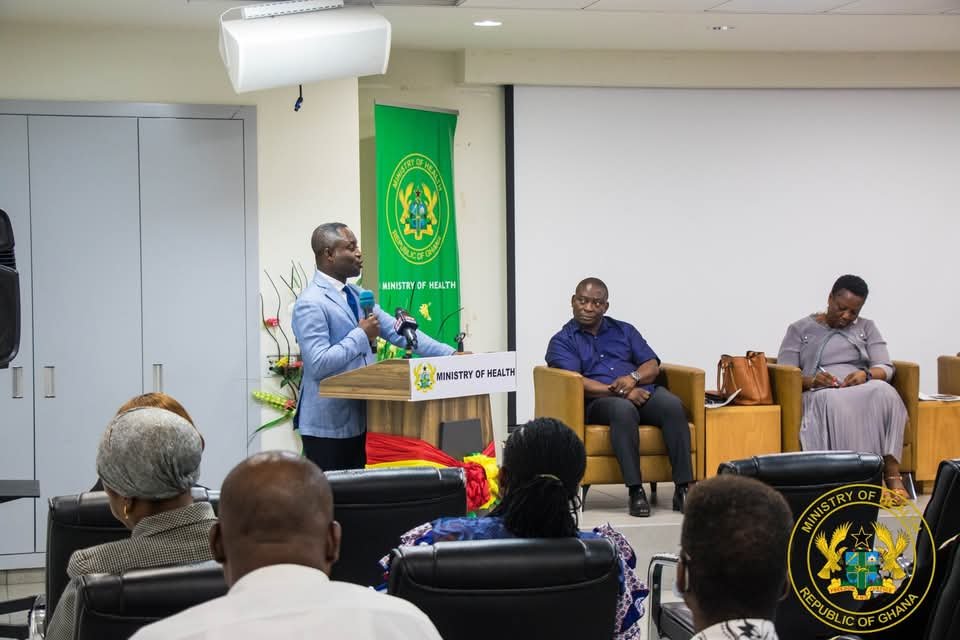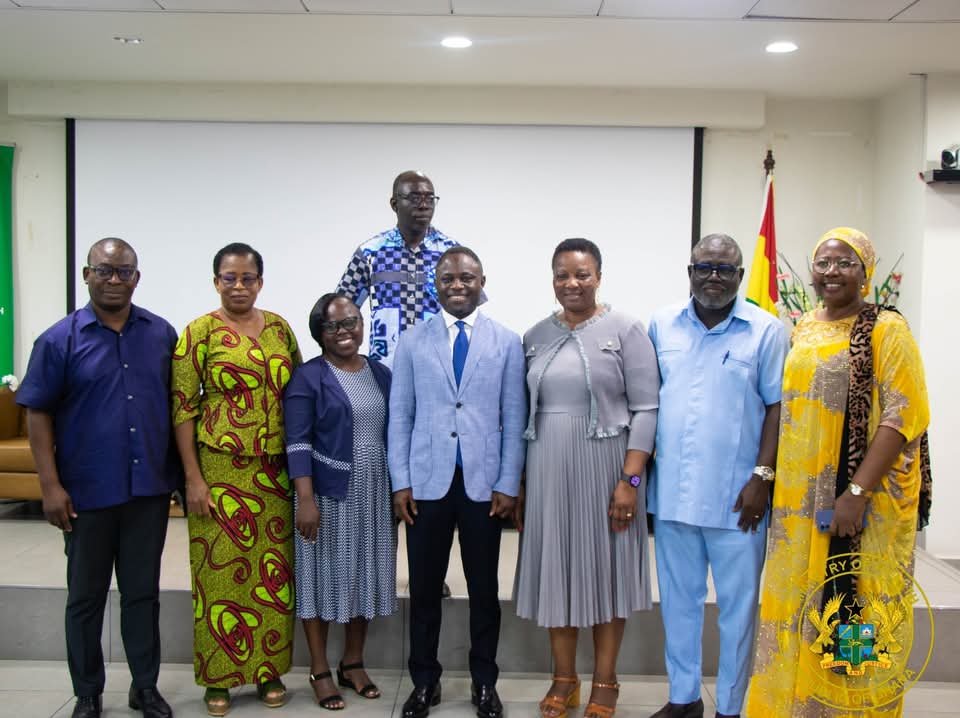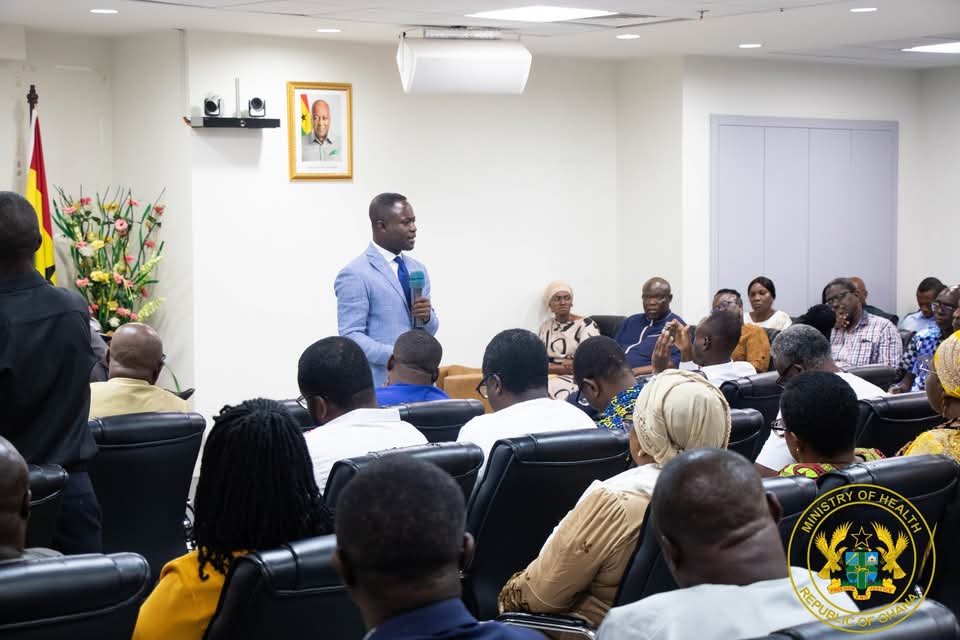News
MPEC organises three-day retreat to deepen capacities of CSOs in conflict prevention and resolution

A picture of some participants
A three-day retreat to deepen the capacities of Civil Society Organisations(CSOs) and minority activists to contribute to conflict prevention and resolution has ended in Accra on Wednesday.
It was necessitated to address issues concerning exclusion and discrimination of minoritiesand indigenous communities, migrants, internally displaced persons.
The retreat was organised by the Media Platform on Environment and Climate Change(MPEC) with funding from the European Union(EU) under the implementation of ‘Engaging Media and Minorities to Act for Peacebuilding’ (EMMAP) programme.
The participants included disability right activists, youth activists, gender activists, child rights activists, migrants’ right activists and journalists.
Topics treated were ‘Overview of Conflict in Ghana’, ‘Conflict and Minority Communities and Groups in Ghana’, ‘Policy and Legal Frameworks on Conflicts’, ‘Community Tensions’, ‘Understanding Ethical’ and ‘Privacy Standards’ among others.
In a presentation, Ms. Charity ForiwaDwommoh,a legal practitioner, and Chief Executive Officer of Women Uplifting Women, said the position of minorities across the world was grave and it was getting worse with a rise in hate speech and hate crimes targeting minorities around the world.
She noted that root causes of most violent conflicts were linked to violations of the human rights of minorities and called for mainstreaming of minority issues in conflict prevention efforts.
To address the common root causes of most conflicts, Ms. Dwommoh explained that it was essential to deal with the grievances, real or perceived, before these could be instrumentalised by political forces or created explosive conditions that led to violence.
“Since most contemporary violent conflicts involve aggrieved minorities, strategies to prevent conflicts involving minorities should figure prominently in international, regional and national initiatives and address directly the root causes of exclusion and injustice” she stressed.
Dr Joana Larry-Afutu, Clinical Psychologist and Lecturer,indicated that minority group activists begin advocacy because of the passion they had to see others live a more fulfilling life however, at a point they seemed to break down.
That she explained,could be referred to as compassion fatigue which could be managed by havinga positive outlook, asking for help, making time for routine screening , discourage activities that may be hurtfulor destructive to stress management process, like substance abuse, revenge or isolation among others.
“Advocacy takes a lot from advocates and they is the need for such advocates to take care of themselves so they can be the voice for the voiceless,” Dr Afutu stated.
BY BENEDICTA GYIMAAH FOLLEY
News
ICU holds Greater Accra regional youth, women confab

The Industrial and Commercial Workers Union (ICU) on Friday held the Greater Accra Regional Youth and Women’s Conference to build a strategic network.
The conference which brought together representatives of the Union was a great opportunity for ICU Ghana to make its voice heard on policies that were crucial to the development of the country.
The platform was also used to elect new officers for the Greater Accra Branch of The ICU Ghana to mark its 12th National Quadrennial Conference in August.
The General Secretary of the ICU Ghana, Mr Morgan Ayawine, called on government to assist the two state-owned media organisation, New Times Corporation (NTC), publishers of The Spectator and The Ghanaian Times newspapers and Graphic Communication Group Limited (GCGL).
“The two state-owned media played major roles in disseminating government policies, educating, entertaining and informing the public of the happenings in the world,” he added.
He said ICU Ghana would also raise issues about the recapitalisation of the two organisations with the sector minister.
Mr Ayawine disclosed that the ADB and NIB banks were also going through the same ordeal but government intervened and urged government to do same for the two state-owned organisations.
He stressed on equal partnership between unions and employers, saying the capital and labour were crucial to create, produce and generate funds.
The General Secretary advised the various branches of the association to suggest solutions on socio-economic issues such as employment for discussions.
The newly-elected members who were sworn in by the General Secretary, Mr Morgan Ayawine includes Belinda Cochrane-chairman, Eric Ekow Turkson-Vice chairman and Moses Kwaku Otoo-Secretary.
Others were Charles Akomea-Financial Secretary, Charles Biden- Executive Member, Diana Asiedu-Women’s Representative and Samuella A. Brago-Youth Representative.
The chairman of the Greater Accra Branch of the ICU Ghana, Belinda Cochrane thanked the leadership for contributing to the success of the union.
She added that the conference was to prepare for the 12th National Quadrennial Conference and also to take stock of the activities of the branch for the past years and discuss issues on the ground.
News
Minister for Health holds emergency stakeholder meeting with principals and directors of Health Training Institutions

In a proactive move to strengthen collaboration within the health sector, the Minister for Health, Kwabena Mintah Akandoh, has convened an emergency meeting with the Conference of Heads of Health Training Institutions (COHHETI) across the country.


The meeting aimed to deepen engagement between the Ministry and key stakeholders responsible for training health professionals.
The session provided a platform for open dialogue on the challenges facing health training institutions, the quality of healthcare education, and the strategic direction of human resource development in the sector.
Addressing the stakeholders, Mr. Akandoh emphasized the importance of fostering strong and cordial relationships between the Ministry and training institutions to ensure a well-coordinated and responsive healthcare system.
He indicated that the purpose of the meeting was also to collaborate, discuss concerns, and find practical solutions that would benefit not only the institutions but also the Ghanaian people who rely on the healthcare system.
The President of COHHETI, Madam Margaret Mary Alacoque welcomed the initiative, describing it as timely and necessary. She raised concerns about transportation challenges, accreditation delays, staffing shortages, and the general conditions and status of service for Health Training Institutions (HTIs). She also shared innovative strategies that some institutions have adopted to improve training outcomes.
In his response, Mr.Akandoh assured participants of the Ministry’s commitment to addressing their concerns and announced plans to enhance coordination and follow-ups.
He added that the Ministry would soon introduce policy reforms aimed at improving standards in health education and ensuring alignment with national health priorities.
These reforms include reducing the cost of admission, implementing automatic code generation for applicants, and clarifying leadership roles within HTIs.







